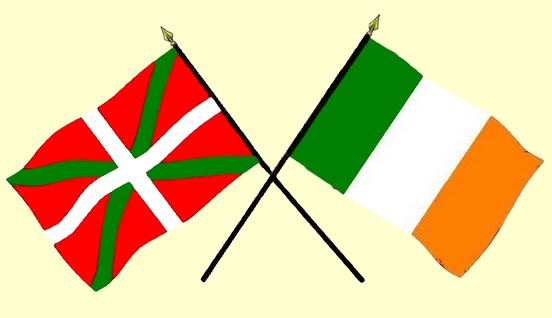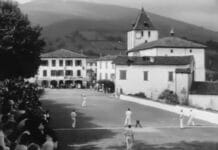This article was translated by John R. Bopp
To start warming up, what with Aberri Eguna (the day of the Basque Homeland) fast approaching, we’re going to remember that today is Saint Patrick’s day, the national holiday of Ireland, another European nation that fought, and fights, for recognition as a nation and its right to have complete sovereignty.
We’ve spoken about Ireland a lot in the years since we’ve been keeping this blog. It’s a land that is close to the Basques in its way of being, its history, and even its culture. One of the major discoveries we’ve made thanks to this blog was how closely the Irish and the Basques are genetically related.
This is a topic that also seemed to really interest our readers, because the articles we’ve written on this matter are among the most visited on our blog. Not that this surprises us, because they’re also part of that group of topics that for “mysterious reasons”, were they brought up by a Basque scientist, would be thought of in Spanish and French media as silly, or as just another symptom of the “(Basque) nationalist cancer” that permeates the Basque reality.
Fortunately for science (and unfortunately for the group of “intellectuals”, “scientists”, and “journalists” who look at the world through that deformative filter of French or Spanish nationalism), the research was carried out by scientists who are neutral to the confrontation between these two concepts of national identity.
There are three entries that refer to these deep connections between the Basques and the Irish which are among our most widely read:
- ¿Irlandeses y vascos, los europeos originarios? (The Irish and the Basques, the original Europeans?
- Una explicación científica a la teoría del origen vasco de los británicos A scientific explanation of the theory of the Basque origin of the British
- Los irlandeses son descendientes de los vascos (lo dicen en Irlanda) the Irish are descended from the Basques (or so they say in Ireland)
This research really goes a long way to explaining the fondness between these two peoples.
In any case, today, on March 17, St. Patrick’s day, the day Irish around the world celbrate the freedom of most of their homeland.
Zorionak!
Wikipedia – English
Saint Patrick’s Day
Saint Patrick’s Day, or the Feast of Saint Patrick (Irish: Lá Fhéile Pádraig, “the Day of the Festival of Patrick”), is a cultural and religious celebration held on 17 March, the traditional death date of Saint Patrick (c. AD 385–461), the foremost patron saint of Ireland.
(Continue)
Last Updated on Mar 18, 2022 by About Basque Country






